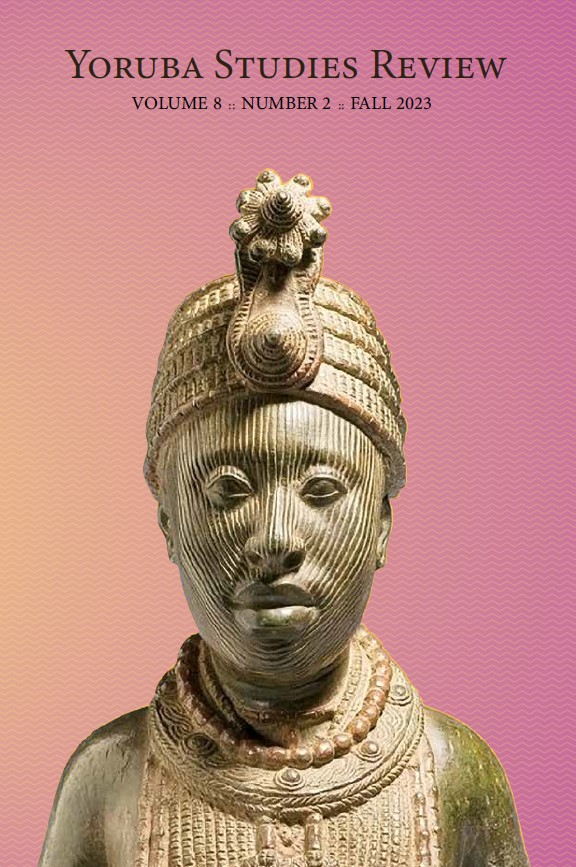Abstract
This essay explores the genres of Biripo, the Ilaje oral performance or folk-poetry, Ijegbe and Luse vis-à-vis the notion of collectivised tragedy and ideology among the people. Few forays have been undertaken into Biripo, but no known research has been carried out Ijegbe, Luse and collectivised tragedy and ideology among the people. The essay adopts Richard Schechner’s performance theory which sees performance as representation of self and advocates the revolutionary departure from the confinement of theatrical enactments to the theatre. The theory is suitable since the concepts of Ijegbe and Luse are performance-centred. The essay employs oral interviews; secondary materials like textbooks, filmic records of already performed Ijegbe and Luse, journal articles and electronic materials for information garnering.
The essay unfolds the meanings of Ijegbe and Luse as the mother of or home-grown forms of the modern rap art or music. They are the genres of Biripo that are performed as the indigenous form of western dirge or elegy performed for the sole purpose of mourning the loss one’s loved ones. The paper also reveals how practice of collective performance of Luse and Ijegbe epitomises the notion of collectivised or shared tragedy and ideology among the people. Also revealed in the essay is the fact that the two genres are potent agencies of transmission and propagation of indigenous knowledge system. The paper, therefore, recommends the perpetuation of the forms for the continuity of the people and their sense being.

This work is licensed under a Creative Commons Attribution-NonCommercial 4.0 International License.
Copyright (c) 2023 Stephen Ola Ajimisan
